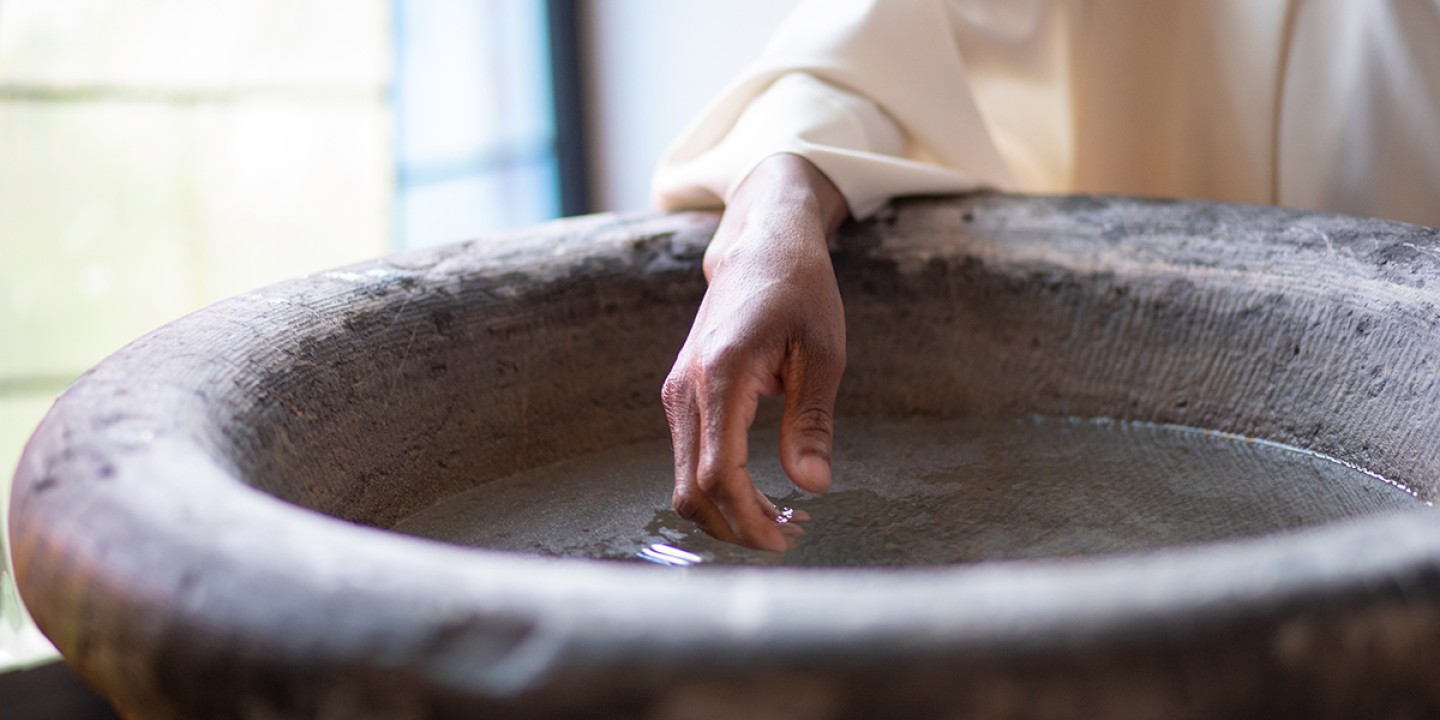Christian liturgy should reflect the unconditional nature of grace
This might mean changing the order of certain elements.

I’ve never sat on a liturgical commission or hymnal committee. I’m not sure I’d be the best candidate for such an assignment, as much as I enjoy liturgy. The process of mapping tradition on the one hand and exploring new expressions of praise on the other demands more patience than I have. Plus, I might bristle in unhelpful ways when agreed-upon liturgical language felt stiff to me. But I respect people who give their talents in these ways. In fact, I have a couple of liturgical revision suggestions to send their way. Both aim to make the priority of grace more central.
A quick survey of Catholic and Protestant baptismal liturgies reveals an ordering that seems peculiar to me, even if those liturgies have all kinds of historical precedent. Parents and godparents are typically asked to make promises about raising their child in the faith—before their kid ever gets splashed with water. Other advance questions surface before the splash: Do you renounce the devil? Will you strive to live a life in opposition to sin? Do you have the courage to challenge the powers of this world that ignore God?
Such questions are certainly pertinent to a life of faith. But by placing them before the baptism actually takes place, the church gives the impression, certainly to those outside the faith, that the grace in baptism is conditional. You meet approval and pass muster if you utter the proper words. Answer correctly and you’re eligible. Respond unsatisfactorily and you’re out.
Imagine if all these questions instead came after the baptismal action of water, as if the presiding minister were to say, “Now that you’ve been baptized, now that you have been received by God without condition, now that you have had grace poured on you without any prerequisite behaviors, there are some joyous responsibilities that go with this new life you’re now undertaking. Do you think you can handle them? Are you open to striving to fulfill these promises we’re about to ask you to make? Of course you are! And you know what? We as a faith community are ready and willing to help you out. We’re going to start right now by pledging to pray for you and your child. Sound like a plan? Great!”
Something similar could be argued for the re-ordering of confession and forgiveness. I’m not aware of any tradition in which the absolution of sins comes regularly before the confession of them. But this would make gospel sense. We don’t confess our sins in order to be forgiven; we confess them because we are forgiven. Think of all the places where Jesus announces forgiveness for guilty people prior to them cleaning up their act or promising to repent. You can start with the paralyzed man on the stretcher or the story of the prodigal son and go from there. Forgiveness is either unconditional or it’s not forgiveness at all. It’s not a contingent enterprise. We ought to put the joy of absolution first in the liturgy and then rely on it as inspiration for leveling honestly with God and with one another about our sin.
I know it’s dangerous to tamper with liturgies that have been centuries in the making. But maybe it’s time we get beyond suggesting that grace has a this-for-that logic to it.
A version of this article appears in the print edition under the title “Grace comes first.”





